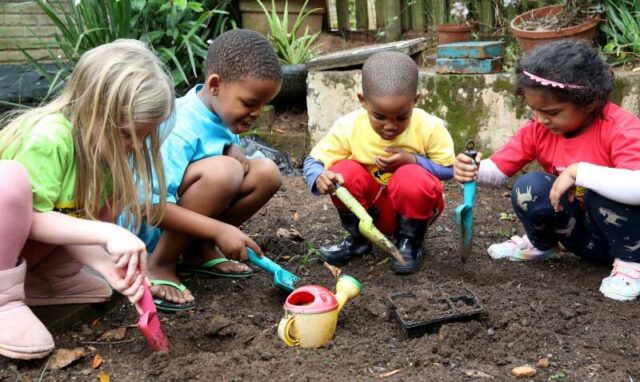Modern homesteading, slow living and slow eating are all set to grow in 2024.
THE coronavirus, which erupted around the globe almost three years ago, went on to alter several aspects of society and modern life.
And while the Covid-19 pandemic – and the restrictions it brought with it – might be over, many people are still implementing some of the practices they adopted during this era.
This includes positive initiatives such as saving money, as well as home-based activities such as gardening, up-cycling, crafting and reading.
Now in 2024, experts have predicted that this way of “slow living” is expected to continue.
“It is predicted that in 2024, home is the place where Africans will be able to save money and spend more time focusing on home-based activities,” Radisson Blu Hotel Waterfront Executive Sous Chef, Bianca Beukes, believes.
“This is also in a bid to enjoy more mindful activities and continue with the post-pandemic trend of saving up for one or two unique experiences each year, in place of many little, less exciting activities each month, such as dining out every night.”
Beukes added that prioritising saving money also comes as the cost of living is predicted to continue to rise this year.
There are also environmental concerns that are increasingly looming large, with an increasing number of people now seeking simpler, more sustainable ways of living.
“This desire for living with less, being more present in our daily lives, and strengthening our connection with nature,” the renowned chef said.
Meanwhile, she also noted that homesteading, “a lifestyle whereby you rely on natural resources wherever possible and make environmentally conscious choices for a more self-sustainable life”, is also gaining momentum.
Modern homesteading, slow living and slow eating are all set to grow in 2024 as people recognise the value in living intentionally and lowering their cost of living.
Here are some of Beukes’s practical aspects to consider:
Recycling or collecting water
Water scarcity is a pressing concern in South Africa, with droughts and water shortages affecting various regions.
As a response to these challenges, many have already adopted the water collection aspect of homesteading by digging boreholes or installing water tanks for the collection and storage of rainwater.
Meanwhile, Beukes suggested that other ways to reduce water usage include reusing grey water for purposes such as flushing toilets.
Recycling and re-purposing
As the ultimate goal of homesteading would be to achieve a zero-waste lifestyle, recycling and re-purposing waste products are key, Beukes stressed.
She said that this often involves thinking creatively and finding new uses for items that might otherwise be discarded.
“For example, old jars can become storage containers and worn-out clothing can be upcycled into quilts or rags.”
Beukes also advised using food waste in your garden.
“If you have a compost heap or bin, you could add your off cuts from fruits, vegetables and even egg shells, while coffee grounds can be used as mulch and fertiliser.”
Growing your own food
Beukes also believes that while many may think that growing their own food is reserved for those with large properties and gardens, this is not necessarily the case.
“From small balcony gardens to pot plants, people are finding creative ways to practise this in urban environments.”
She added that the benefits of growing your own food extend far beyond cost savings. “While many people grow their own food to cut costs or reduce their carbon footprint, what they often don’t realise is that homegrown, freshly-picked food is also higher in nutrients and more delicious.”
The chef also pointed out that by growing your own produce at home, you significantly reduce the time between farm and table.
“This means that the flavour and nutrient content are preserved and any need for unhealthy preservatives is eliminated.”
But if you can’t grow your own, Beukes recommended opting for only buying seasonal produce.
“In-season fresh produce is nutrient dense and is much more flavourful. Buying it also supports local farms, markets and employment.”
Food preservation
Seasonality in fruits and vegetables means that there are times of abundance and times of scarcity.
Beukes said that food preservation is an aspect of homesteading that helps maintain variety in your diet while minimising food waste.
“Canning, fermenting, seed saving, pickling, freezing and jam-making are among the homesteading methods used to ensure that no food is left to rot but instead enjoyed at a later time.”
Up-cycling food
Beukes also stressed that as the cost of living rises, some of the changes we’ll make in our kitchens arise out of necessity too.
“Opting to upcycle food – using the same ingredients for multiple meals or growing home garden plants out of used veggies – is a means to make eating more affordable and sustainable at the same time,” she said.
The sous chef also explained that upcycling food is about consuming anything made from ingredients that would normally be discarded.
“It can be as simple as using yesterday’s roast chicken in today’s chicken mayonnaise sandwich, and tomorrow using the bones to make broth.”
And as a chef, Beukes said that she is passionate about keeping waste to a minimum in the kitchen and ensuring that everything is used; to not only save money, but to reduce our impact on the environment.
“Countless unexpected possibilities exist for transforming undervalued ingredients into surprisingly delicious meals, like mashed potatoes and garlic used for crispy potato cakes, beef chuck and beans for a tasty ragu, and butternut to add depth to a veggie mac and cheese.”








